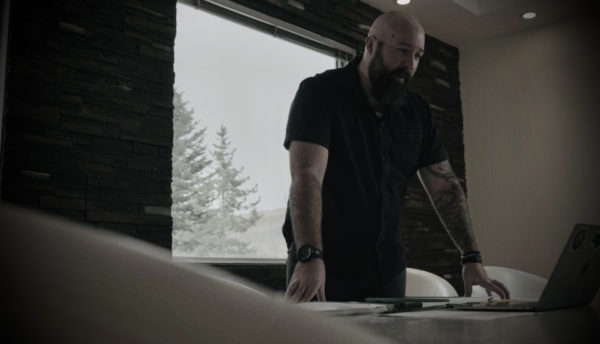
Each week, Terry and Joe discuss Blumhouse’s true-crime docuseries Fall River on EPIX. We’re up to the finale “Into Hell”
Spoilers follow for Episode 4, “Into Hell.”
Miss a Review? Episode 1 / 2 / 3
JOE
Well Terry, this is the way Fall River ends: not with any closure, but with a general indictment of the inefficacy of the American criminal justice system and a collective shrug that we’ll never truly know the truth about what happened in this sordid case.
It’s partially expected (I predicted we wouldn’t get answers at the end of our episode 3 review) and it’s arguably the closest that the docuseries has come in its four episode run to depicting the non-sensational truth. The reality is that justice is not served simply because an award-winning director makes a documentary about your case.
But hot damn is it also unsatisfying, huh?
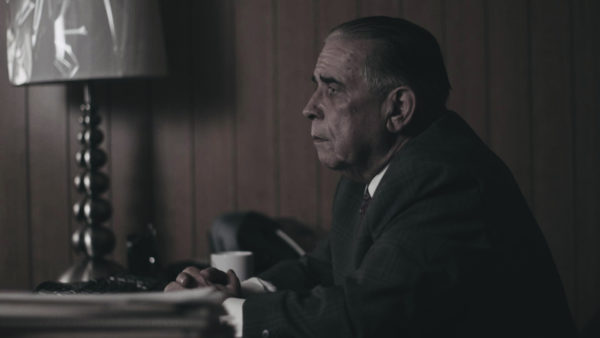
Of course this would be less bothersome if it didn’t feel as though so much of Fall River was window dressing: a small story writ large with all of the usual true crime embellishments. As we’ve lamented each week, the EPIX/Blumhouse production has never justified its runtime or episode number. That’s especially apparent in “Into Hell” when the man behind the camera, Fall River director James Buddy Day, appears in his own documentary to lay out – rather succinctly, I might add – his opinion of how it all went down.
In short: the real criminal behind the murders of Doreen Levesque, which opened episode 1, as well as Barbara Raposa (introduced in episode 3) were both committed by pedophile Andy Matthias. The connection to the third murder victim, Karen Marsden, is more tenuous: Buddy Day and the mysterious unidentified witness (who may or may not be Carl Drew’s illegitimate son) pin the crime on Carl Davis, Sonny and Robin Murphy, though Mathias was coincidentally arraigned and let out of bail only hours before Karen’s murder.
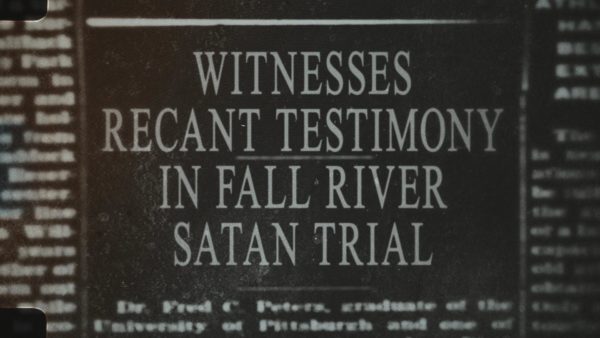
This account is firmly rejected by Robin, however. The woman heralded as a criminal mastermind in previous episodes finally acquiesces to appear on camera in what Fall River clearly hoped would be a The Jinx-like moment, but the convicted woman doesn’t deliver a stunning revelation. She merely seems tired, candidly admitting her inability to remember small details after four decades and lamenting the fact that other people are still spinning stories. The coda, which catches audiences up on where all of these players are at the end of filming, seems to linger on Robin’s details – the teen girl who plead guilty to a murder anticipating she would be out on parole in 12 and who still sits in jail 34 years later. In Fall River’s grand scheme, Robin takes the mantle as the resident tragedy.
We may never know exactly what happened forty years ago and the docuseries is unable to offer definitive clarity, but there is confirmation that the system is broken. Fall River began by highlighting the disproportionate amount of crime in Fall River in the late 70s and early 80s and, over the course of four episodes, established that police had neither the time, nor the inclination to protect young vulnerable women (most of whom were killed, got addicted to drugs, became teen mothers, or went to jail). It’s unsurprising that Carl Drew, Robin Murphy and even Andy Matthias wound up in jail, but the circumstances of their imprisonment and the length of their stay doesn’t accurately reflect the nature of their crimes.
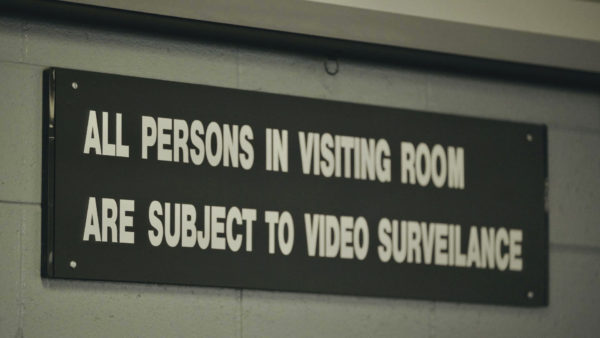
My issue is that this isn’t news. Am I surprised that judges and DA and police didn’t execute due diligence (at best) or are corrupt (at worst)? Um…no, not at all. Am I surprised that vulnerable girls and women suffered the most as a result? Also no.
Four hours is a long time to dedicate to confirming things we already knew and Fall Rivers isn’t compelling enough, paced well-enough, or stylistically distinct enough from other true crime docuseries to merit this level of investment. Grade: C
Terry, what did you think of this final episode and it’s (lack of) revelations and closure? Do you feel sympathy for Carl Drew and Robin Murphy? Did you grate your teeth through the obligatory – and unnecessary – blips dedicated to COVID-19? Is it odd that, with some finessing, director James Buddy Day’s explanation could have constituted the whole series? And what is your final grade for Fall River?
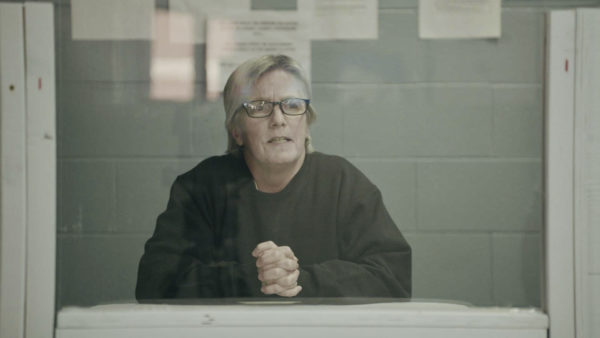
TERRY
I’ve been thinking about this show a lot over the last few weeks, Joe, because I do think there’s an interesting story buried here. But Fall River seems confused as to what it’s actually about. Much like the satanic panic that plagued the era, this overarching narrative feels overstuffed and, well, muddled.
What’s bizarre is that even though the majority of the episodes barely touch on the satanic undertones that shadowed what really happened, the docuseries seems so focused on structuring its episodes around it. From the way the episodes are titled (“Into Hell” and “Mark of the Beast,” etc.) to even including chapter titles throughout each episode with religious comparisons, like “The Devil’s in the Details” and “Sympathy for the Devil,” Fall River clings to this aesthetic even though it’s barely been about it from episode two on.
As a viewer, it’s been a frustrating experience because each episode ends with a juicy little nugget that suggests the next interview will drop bombshells of truth…before giving us the story of an unknown man who was a kid and might have been on the roof and might have seen someone. It’s a hazy interview in a series about a 42 year old crime whose entire cast of interviewers and interviewees are the definition of unreliable narrators, and that’s before you add the fog of a half century into the mix.
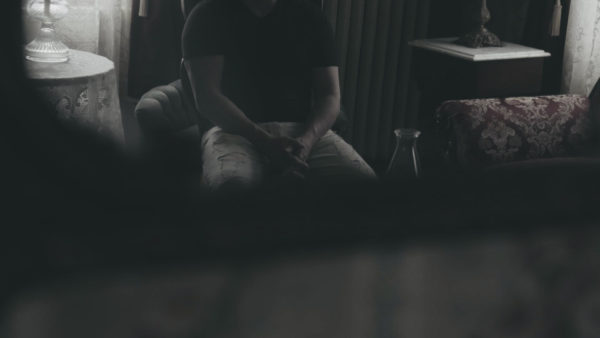
Looking back at James Buddy Day’s work, he produced and directed documentaries like Catching a Serial Killer: Bruce McArthur and Manson: The Women as well as Charles Manson: The Funeral and Casey Anthony: Her Friends Speak. All are sensationalized crimes and murder stories.
It feels like that work explains why we got what we got with Fall River and probably why it continues to go back to the satanic well, even though it was established early on that devil-worshipping cults had nothing to do with it.
The kicker was when director James Buddy Day inserted himself into his documentary. That’s when I realized the vainglorious nature of the series. It suggests the reason that a lot of the people involved with the case are lawyers and private investigators and people involved with Carl Drew: Fall River isn’t about discovering the truth; it’s intent is to prove Drew’s innocence.
The glaring moment you mentioned above when Day is on camera, laying out who he thinks is responsible, is staged as if he’s going over evidence with Carl Drew. One of the choice bits of dialogue had me rolling my eyes is when he tells Carl (on the phone), “So if Andy killed Doreen and Barbara, that still leaves us with Karen Marsden (emphasis mine).” With that perspective, he might as well be on Carl Drew’s payroll, along with the private investigator and the attorney (now retired). Regardless of whether Drew is innocent of the crimes or he was there or he did it, this one sequence shows the bias in the documentary and crosses a line that’s often parodied in mockumentaries: “I got too close to the material.”
I think James Buddy Day is too close to the material.
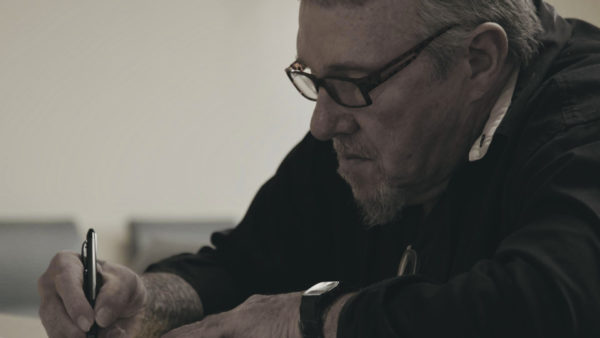
It’s also why, as you suggest above, that Fall River could have been succinctly stated by Day and constituted the whole series…because the whole series is his interpretation. He’s not laying out the facts. He’s not showcasing the situation and bringing light to it. This is Day’s opportunity to get Carl Drew out of jail because, as Alan Silvia, the former detective, states: Carl has exhausted his appeal opportunities.
Do I feel sorry for Carl Drew and Robin Murphy? Moreso the latter than the former, if I’m being honest. The overwhelming suggestion that Fall River left me with is that Robin Murphy allegedly did all of this to get both Andy Maltais and Carl Drew off the streets. She was an enterprising woman who – the show goes through great lengths to establish – was neglected, assaulted and given no avenues to find safety in her life. And she saw the injustices inflicted by men in power on her friends and loved ones.
That is what I find more tragic than Carl Drew’s story…mostly because, even though he shows up to offer his bon mots about getting COVID, etc., we really don’t get to know him. I know more about Robin Murphy than I do about the man the documentary seems poised to exonerate.
Ultimately, Fall River feels rather exploitative for a series that’s about how the media and the police exploited a narrative to tell one specific side of the story. And for that, I give this docuseries a C-.